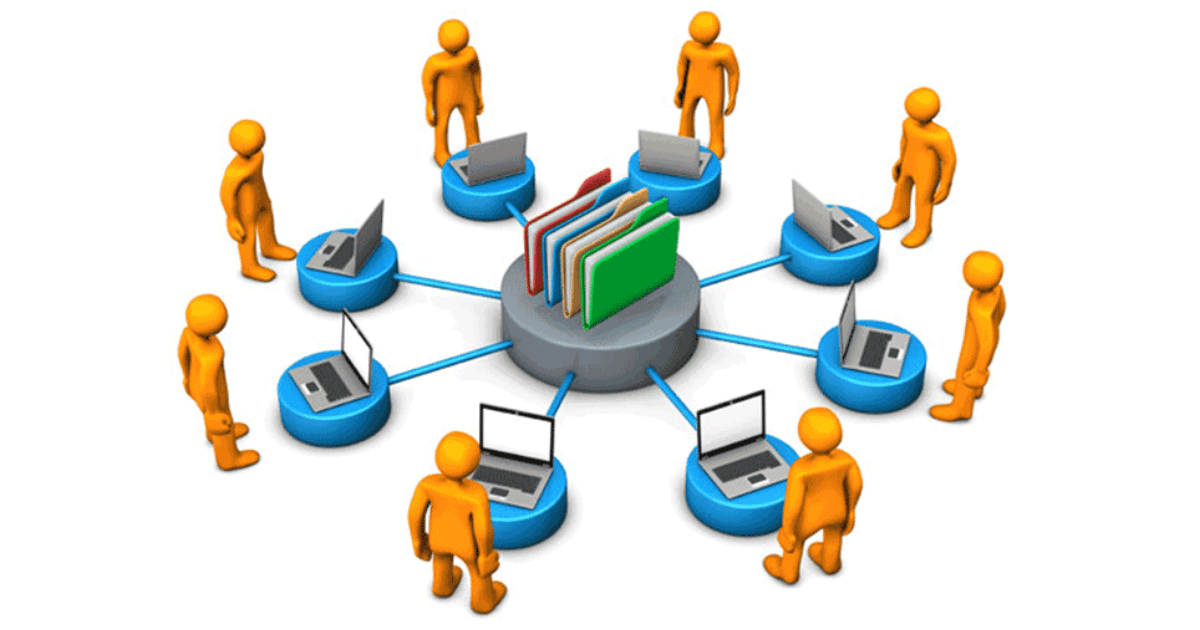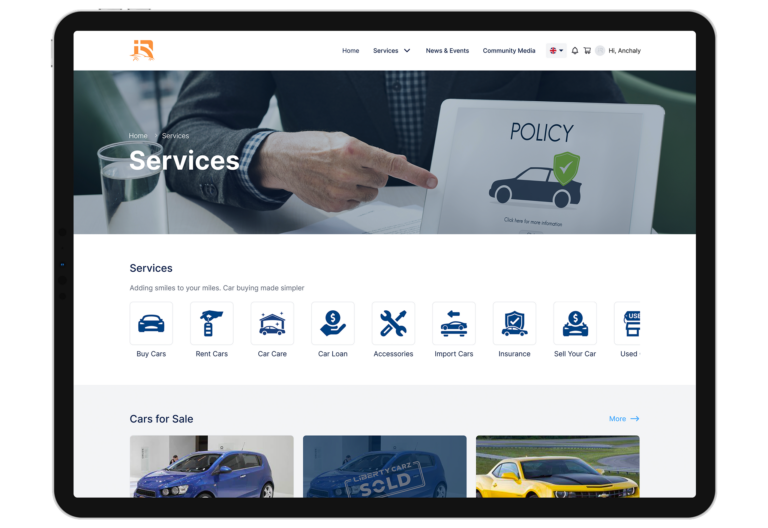Step into the future of education with our latest blog post, delving into the dynamic realm of “Learning Software Deployment.” As technology continues to reshape the way we learn, discover the crucial role of deploying learning software and its impact on the educational landscape.
Whether you’re an educator, student, or tech enthusiast, this blog will provide insights into the evolving landscape of educational technology and the key role that deployment plays in shaping a smarter, more connected learning environment. Let’s explore with Liberty Technology the extensive knowledge of this service.
What is Software Deployment?

To comprehend the concept of software deployment, it is essential to first understand what deployment means. Specifically, deployment involves the act of deploying or arranging something. The term is akin to “install,” but “deploy” and “deployment” carry a distinct connotation.
In the realm of software, deployment is understood as the process of deploying software for practical use in a real-world application environment. Therefore, software deployment is the process of delivering completed software to customers or specific software components to end-users. Software deployment should only take place after thorough testing to ensure there are no vulnerabilities or errors remaining.
Importance of Learning Software Deployment
The importance of deploying learning software is highlighted by its crucial role in the realm of software development. The deployment phase stands as a vital component of the software development lifecycle, without which the software remains inactive, unable to serve its intended purpose. Moving beyond mere distribution, learning software deployment becomes a pivotal mechanism for adapting to evolving business requirements and ensuring customer satisfaction by delivering new features and updates.
Mastering the deployment of learning software offers several key advantages, with one standout being its ability to facilitate the smooth release of software updates and patches. This capability empowers developers to efficiently build and test new code, ensuring a responsive and adaptive software system. The integration of automated patch management solutions further amplifies this process, promptly notifying users of new updates and contributing to a more secure and up-to-date software environment.
Moreover, learning software deployment serves as a catalyst for optimizing business processes through tailored solutions, fostering improved company-wide operations and heightened productivity. The inherent automation in the deployment process translates to time savings, making installations faster compared to traditional methods.
The commitment to continuous monitoring of newly deployed environments demonstrates the proactive nature of learning software deployment. This vigilance enables the timely rollback of updates in the event of unforeseen issues, ensuring system stability and minimizing potential disruptions. Beyond operational efficiency, learning software deployment also plays a critical role in enhancing the security of critical processes and sensitive information by swiftly delivering necessary updates.
Steps in the Software Deployment Process
Planning and Assessment:
The initial phase involves meticulous planning and a thorough assessment of the organization’s requirements. This includes identifying specific challenges that the software aims to solve and establishing clear solution requirements. Constraints like budget, resources, and infrastructure are also considered during this phase.
Configuration Management:
Once needs and objectives are identified, the focus shifts to developing or configuring the software solution. This may entail customizing existing packages, creating bespoke solutions, or integrating multiple applications. Emphasis is placed on ensuring compatibility with existing systems, conducting comprehensive testing, and collaborating with stakeholders to tailor the software to organizational needs.
Testing and Quality Assurance:
A critical step involves subjecting the software to rigorous testing before deployment. This comprehensive testing process, combining manual and automated methods, identifies and rectifies defects or bugs. It ensures the software functions as intended, minimizing the risk of issues or downtime. Performance, functionality, and security are thoroughly reviewed to guarantee reliability and efficiency.
Actual Deployment:
Following successful testing, the software is deployed to end-users. This entails installation and configuration on relevant hardware and infrastructure for enterprise applications or cloud solutions. For consumer software or mobile applications, deployment may occur directly on end-user devices. Continuous monitoring is crucial during deployment to address issues promptly, and the option to roll back to a previous version exists if needed.
Monitoring and Maintenance:
The software deployment process extends beyond the initial rollout. Continuous monitoring of performance and functionality is essential, addressing any emerging issues promptly. This ongoing effort ensures the software remains effective and delivers desired results. Regular updates, patches, upgrades, or configuration changes may be implemented as part of monitoring and maintenance practices.
Documentation:
Maintain detailed documentation of the entire deployment process, including configurations, settings, and any issues encountered. Document changes made during deployment for future reference.
Update user manuals and system documentation as needed.
Advantages of a Successful Software Deployment Process
Employing a structured software deployment process serves as a proactive measure to mitigate the risk of issues or downtime during implementation. By adhering to a clearly outlined set of procedures, businesses can detect and address potential problems before they escalate, thereby minimizing the likelihood of disruptions to operations or end users. This becomes especially critical when dealing with intricate or mission-critical software solutions, where any issues could profoundly impact organizational functions or end-user experiences.
Additionally, a meticulously planned software deployment process carries the advantage of time and resource savings for businesses. A methodical approach helps organizations steer clear of common pitfalls, streamlining the implementation process and consequently reducing the time and effort needed to deploy new software solutions. This not only translates to significant cost savings but also liberates valuable staff resources for allocation to other crucial tasks.
Ultimately, a well-devised software deployment process contributes to elevating the overall quality of the software solution. Through rigorous testing and meticulous configuration, businesses can ensure that their software is not only reliable but also secure and efficient. This commitment to quality enhancement extends to fostering a superior user experience, thereby increasing overall user satisfaction.
Choose Liberty Technology – Pioneer Distributor in the Edtech field at Cambodia
Liberty Technology stands as a Pioneer Distributor in the Edtech field at Cambodia, particularly excelling in the deployment of learning software. In a landscape where educational technology is still gaining traction, with only a handful of organizations delving into its development, Liberty Technology has emerged as a crucial partner in distribution. Our commitment lies in providing optimal solutions for Cambodia’s education sector, focusing on the deployment of advanced learning software.
If you possess learning implementation software and are looking to tap into the Cambodian market, we serve as a valuable link to seamlessly connect your software with educational facilities throughout the country. In this age of rapid digital transformation, Liberty Technology assumes the role of a facilitator, streamlining the learning software deployment process and fostering a technologically advanced educational environment throughout Cambodia.
For more information about our Learning Software Deployment services, please contact Liberty Technology now:
Email: [email protected]
Phone: +855 815 845 25












